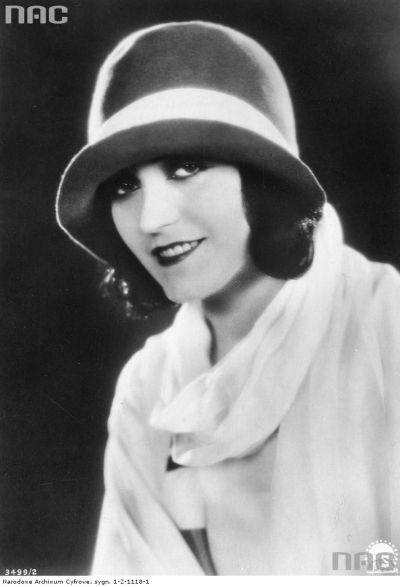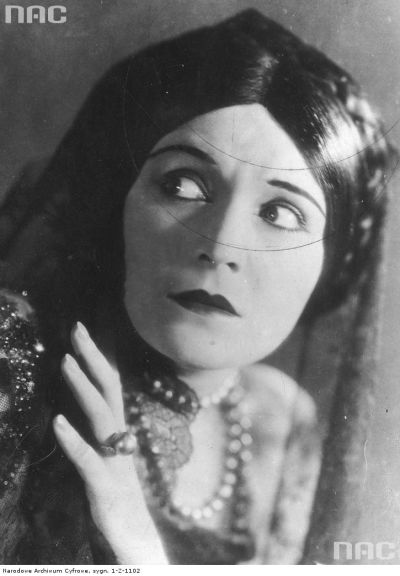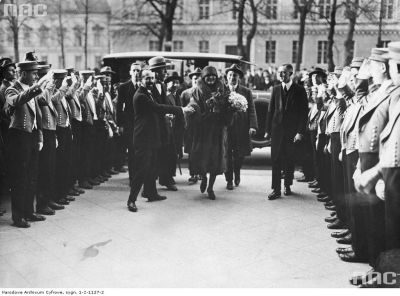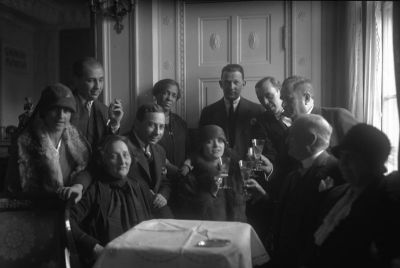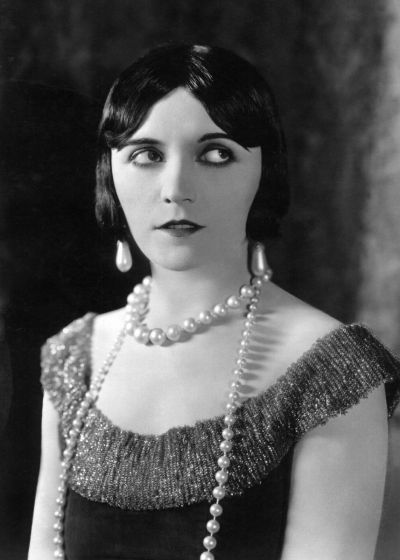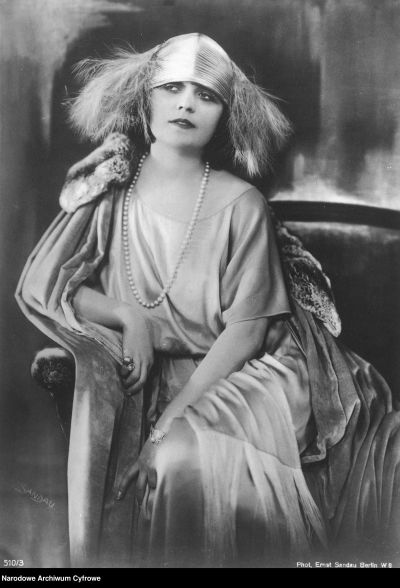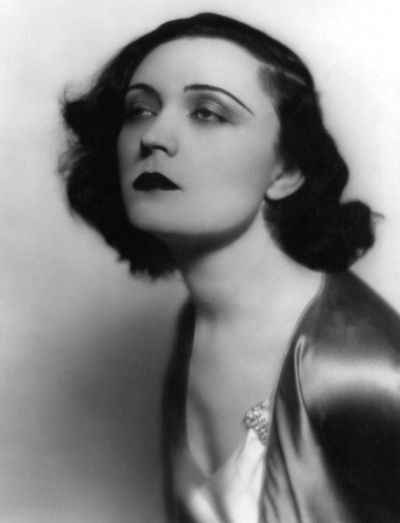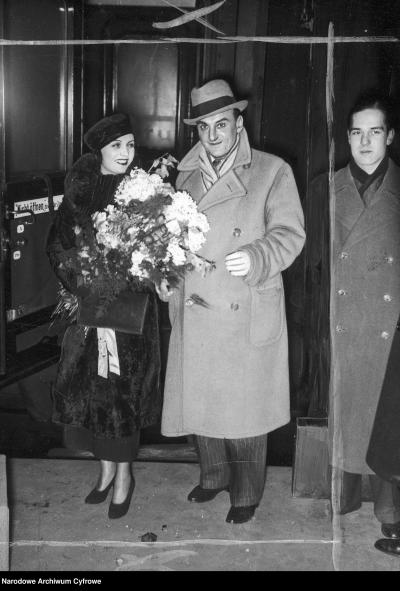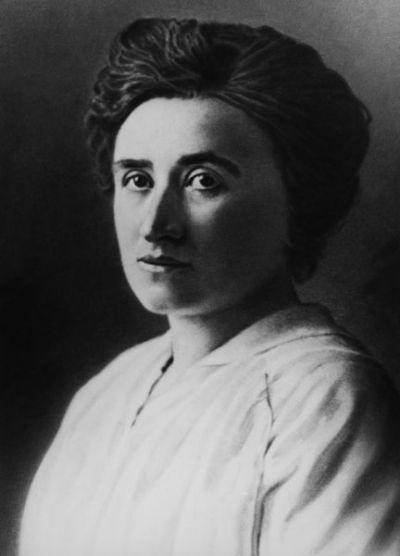Pola Negri

Biographical data
Pola Negri, real name Barbara Apolonia Chałupiec
1897 Born on 3rd January in Lipno (Poland)
1904 Moves to Warsaw
1912 Theatre debut in Warsaw (Teatr Maly / “Sluby panienskie”)
1914 Film debut in Warsaw (“Niewolnica zmyslow”. Director: Jan Pawlowski)
1917 - 1923 Film work in Berlin
1922 Moves to the USA
1923 - 1928 Film work in the USA
1934 Moves back to Berlin
1938 Leaves Germany for America via France
1964 Pola Negri’s final film “The Moon-Spinners”
On 1 August 1987 Pola Negri dies in San Antonio (USA)
Additional information:
Pola Negri interrupted her ballet education because of tuberculosis. She recovered in the spa town of Zakopane, where she not only sought the power to live but also artistic inspiration which she found in the poems of the Italian poet Ada Negri. Fascinated by her works Apolonia Chalupec adopted the pseudonym: Pola Negri.
She sought for happiness in love in vain. She was married twice, neither of them very happy: in 1919 to the Polish Count Eugeniusz Dambski, and in 1927 to the Georgian Prince (the title was not genuine) Sergius Midivani. Both marriages ended in divorce. In the meantime and also afterwards she was involved in many affairs. The most famous was with Charlie Chaplin and the subsequent war of the roses; the most tragic with Rudolfo Valentino who died after an operation, shortly before his alleged marriage to Pola Negri.
“Mazurka” with Pola Negri in the leading role was alleged to be one of Adolf Hitler’s favourite films. He is supposed to have idolised her even though Pola Negri (Apolonia Chalupec), was unable to provide the authorities with any proof that she was Aryan. No less than the propaganda minister Joseph Goebbels in person officially confirmed that she could not possibly be Jewish.
In 1972 in Berlin Chancellor Willy Brandt awarded her with the Gerhart Hauptmann Medal in Gold.
Notable quotation:
“In the cinema it’s just like in life, you have to get a good place!”
